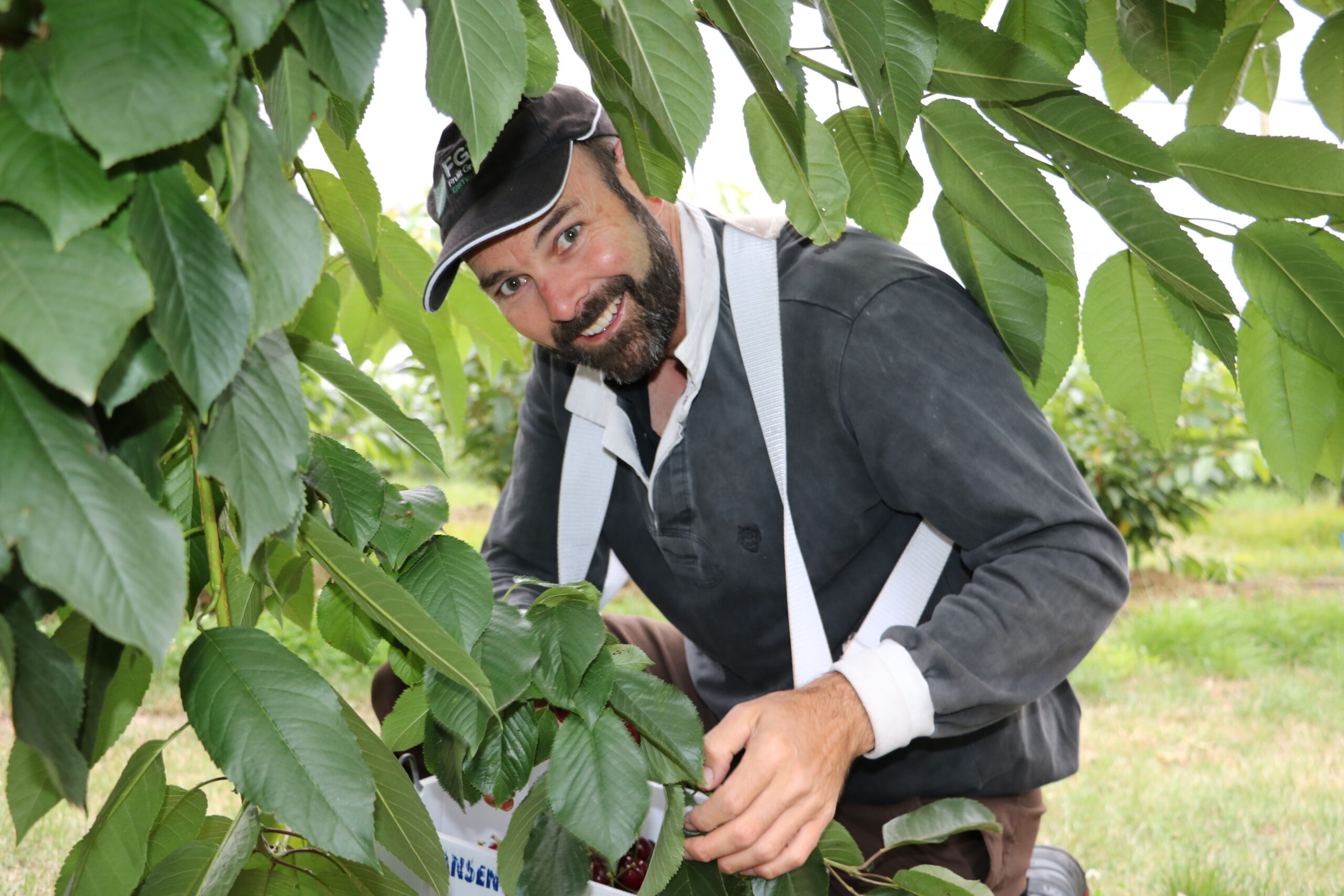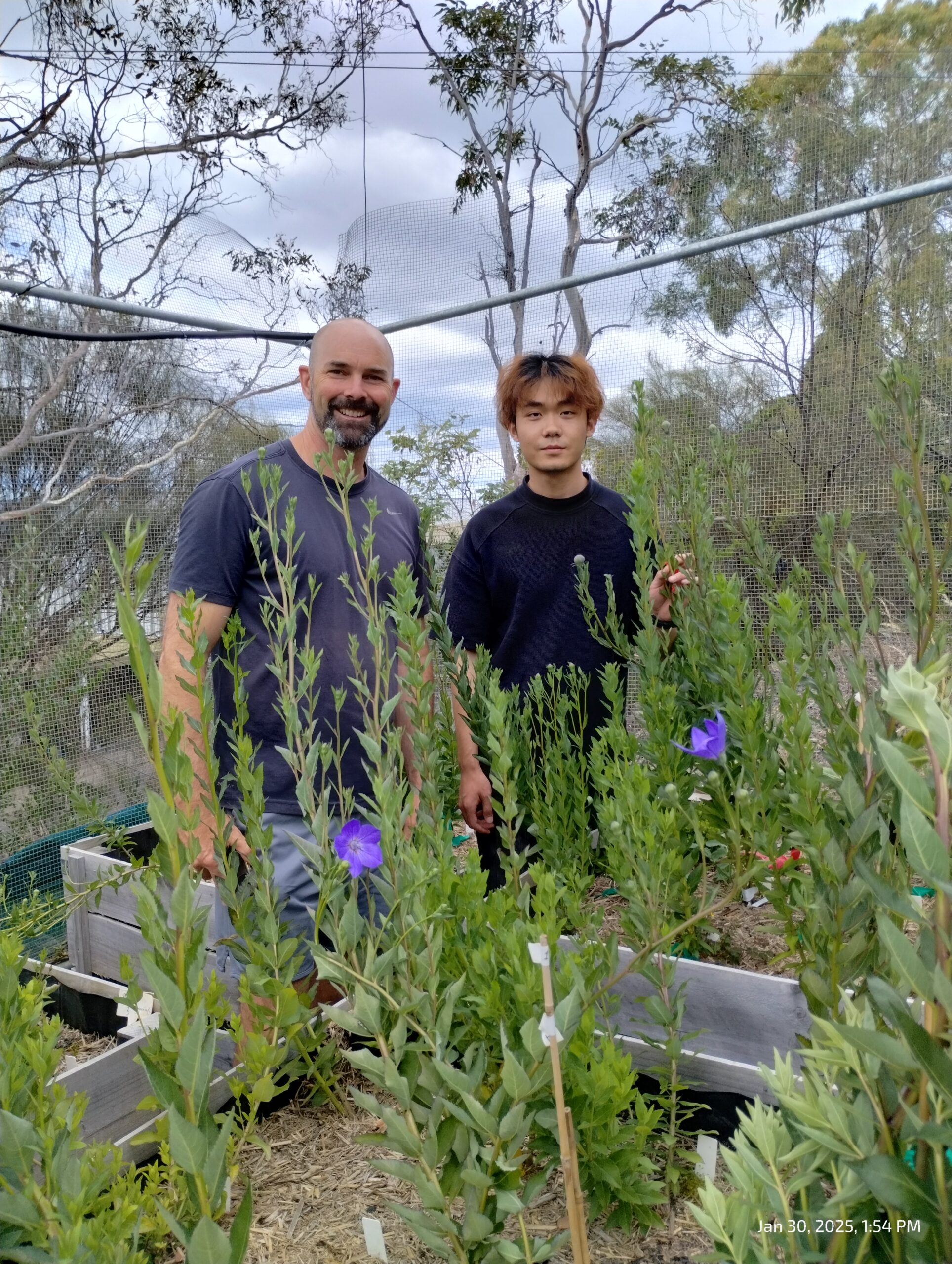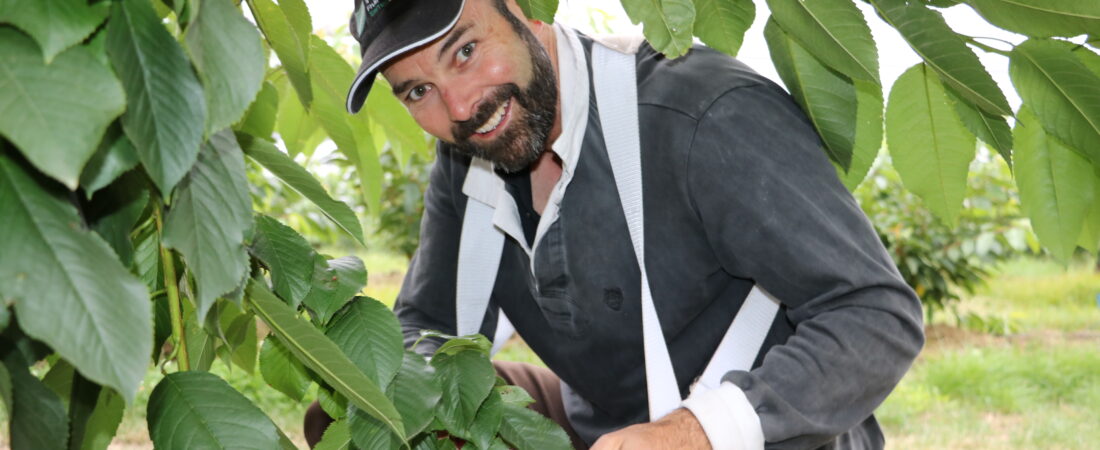Professor Dugald Close – Growing Tasmanian Chinese Medicine
Posted on September 25, 2025
Part of the mission of the Tasmanian Institute of Agriculture (TIA) is to support the sustainable development of the state’s agricultural sector. So when a Chinese delegation, facilitated by Melbourne company W&E Health, visited the UTAS facility in 2016 to learn more about the industrial production of poppies for opiate medicines and natural insecticides, and conversation turned to traditional Eastern medicinal herbs, the TIA saw an opportunity.

“Because crops need to be grown in rotation, any option to diversify is good,” explains Dugald Close (1992), TIA’s Professor in Horticulture and Deputy Director. Six of the seven Chinese herbs his team decided to investigate are perennials, which are terrific for soil health and conservation. “And they’re a small-volume, high-value product,” says Dugald, a horticultural scientist. “This is a benefit because it’s just as expensive to get product to Melbourne as it is to Hong Kong.” One 2024 analysis valued the global traditional Chinese medicine market at AUD$381 billion, a figure projected to almost double by 2033.
For the proof-of-concept research, Dugald has been working with seven PhD students, whose backgrounds vary between food science, pharmacology, Chinese medicine and agronomy. The students have investigated one herb each in the well-draining soils of north-west Tasmania, paying particular attention to building and maintaining the bioactive components – compounds that biologically affect a living thing – before and after harvest. Dugald says all seven trials show promise but one especially so. In October, the project will scale up the production of Mongolian Milkvetch to about three hectares of crop; the hand-planting and hand-harvesting will shift to using machinery as one would commercially grow other crops, to make sure production is economically viable for Tasmania’s farmers.

For someone who’s worked mostly with apples and cherries during his career at the University of Tasmania, Tasmania’s Department of Primary Industries and at Kings Park and Botanic Garden in Western Australia, Chinese herbs have presented a torrent of learning. “The apple is probably the most researched fruit in the world, with hundreds of years of research into a single species,” says Dugald, who became attracted to horticulture as a kid on his uncle’s small orchard. “But with this, we’re starting from scratch in our growing systems.” Just as the French have particular appellations for wine varieties, the Chinese have dao di regions – premier growing sites for each herb by way of climate and soil. Chinese medicine uses pharmacopoeias that list every herb and the minimum level of bioactives required for a herb to have a health benefit. But China’s thousands of years of expertise are not directly transferable to the field research site in Forth, near Devonport, says Dugald: Tasmania has different climate, soils, pests and water quality, and differing production systems in terms of technology and cost of labour.
But, while Chinese consumers worry about pesticide use and heavy metals in their country’s soils, they see Tasmania as clean and green, building a premium brand with high-quality fruit, cheese, beef and wine. “If we could be recognised as a premier region for a herb, that would be a win,” says Dugald.
